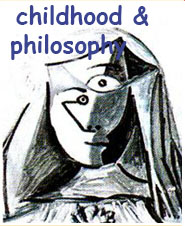from laboratory to praxis: communities of philosophical inquiry as a model of (and for) social activism
DOI:
https://doi.org/10.12957/childphilo.2016.25868Keywords:
Philosophy for Children, Philosophy with Children, Communities of Philosophical Inquiry, Social ActivismAbstract
This article discusses the conditions under which dialogical learner-researchers can move out of the philosophical laboratory of a community of philosophical inquiry into the field of social activism, engaging in a critical and creative examination of society and seeking to change it. Based on Matthew Lipman’s proposal that communities of philosophical inquiry can serve as a model of social activism in the present, it presents the community of philosophical inquiry as a model for social activism in the future. In other words, Lipman’s central ideas in his earlier and later thought—including meaning as a mode of action, relevance as a way of examining life and stimulating influence for change as a form of creating a democratic society—establish two parallel circle of influence: the present time, in the shape of the philosophical community of inquiry that allows activist skills to be honed, and a social space that extends into the future as a forum for applying principles and bettering society. Finally, this paper adduces several forms of social activism that may be anchored in philosophical awareness of real conditions and their contexts. Through them, the community of philosophical inquiry not only constitutes a place in which young people’s thought processes can be developed but also one in which they can aspire to become activists in various areas.




